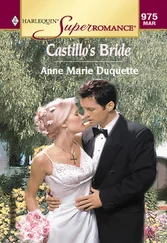They each take a stool by the kitchen window. Look at the stars through the cleanest windows in Borg.
“It was nice today,” says Sami.
“Yes. It was… nice.” She smiles.
She wants to tell him she has to leave Borg first thing tomorrow and go home, but before she has time to open her mouth he says:
“Right, I have to go into town. I have to help a friend.”
“What sort of friend is that? It’s the middle of the night.”
“Magnus. He’s having problems with a few guys there. Owes them money, you know.”
Britt-Marie stares at him. He nods. Smiles ironically at himself.
“I know what you’re thinking. But this is Borg. We forgive each other in Borg. We don’t have a choice. If we didn’t there wouldn’t be any friends left to get pissed off at.”
She stands up. Gently takes his plate. Hesitates for a long time, then at long last tenderly lays her bandaged hand against his cheek.
“You don’t always have to be the one who steps in, Sami.”
“Yes, I do.”
She washes up. He stands next to her, drying the plates.
“If something happens to me can you promise you’ll look out for Omar and Vega and make sure they’re all right? Can you promise me you’ll find good people to look after them?”
“Why would something happen to you?” she asks, the color draining from her face.
“Ah, nothing is going to happen to me, I’m fucking Superman. But you know. If something does happen. Will you make sure they can live with some good people?”
She elaborately dries her hands on the towel, so he won’t notice that they are shaking.
“Why are you asking me? Why don’t you ask Sven or Bank or…”
“Because you’re not the type to walk out, Britt-Marie.”
“Neither are you!”
He places himself on the threshold and lights a cigarette. She stands to one side behind him, breathing in the smoke.
The sun hasn’t come up yet. She picks a hair off the arm of his jacket. Puts it in a handkerchief and folds it up.
“What soccer team did your mother support?” she asks quietly.
He grins, as if it’s quite obvious, and answers the question as all sons with mothers do:
“Our team.”
He drives her to Bank’s house. Kisses her hair. She sits on the balcony with her packed bags and watches him driving off towards town. He has made her promise that she won’t sit up all night waiting for his car to come back.
But she does it anyway.
33

I should like you to know that I’ve handed in my notice. I have to go home, you understand.”
Britt-Marie fiddles with the bandage around her ring finger.
“Admittedly I can perfectly understand that you don’t understand. But I belong with Kent. A person has to have a home. Obviously I don’t mean to say that you also have to have a home. I’m not sticking my nose into that. I’m quite sure you have a perfectly adequate home.”
The rat sits on the floor, looking at the plate in front of it as if the plate had stepped on its tail and called it a blithering idiot.
“I ran out of Snickers,” Britt-Marie says apologetically.
The rat looks at the jars on the plate.
“That one is peanut butter. And this is something known as Nutella,” she says proudly. “They’d run out of Snickers in the grocery, but I’ve been informed that in all important respects this is the same thing.”
It’s still the middle of the night. Somebody was not at all pleased about being woken up, but Britt-Marie couldn’t bring herself to sit on her own with her bags on Bank’s balcony. Couldn’t bear it. So she came back here, to say good-bye. To both the rat and the village.
Britt-Marie stands by the window. It’ll soon be dawn. Somebody has turned out the lights in the pizzeria and gone to bed again, in the hope that Britt-Marie won’t be banging on her door because she needs peanut butter and chocolate. The party is long since over. The road lies deserted. Britt-Marie rubs her wedding ring with a potato smeared with baking soda, because that is the best way to clean wedding rings. She often does that with Kent’s wedding ring; he often leaves it on his bedside table. He’s often so distracted, Kent is, whenever he’s about to meet with the Germans.
Britt-Marie usually cleans the ring until it gleams, so he won’t be able to avoid noticing it when he gets out of bed the next morning.
This is the first time she has cleaned her own ring. The first time she has not worn it on her finger. She whispers, without looking at the rat:
“Kent needs me. A person needs to be needed, you have to understand.”
She doesn’t know if rats sit awake in their kitchens at night, thinking about how they are going about their lives. Or who they are going about their lives with.
“Sami told me I’m not the type to clear off, but you have to understand that that is most certainly exactly what I am. Whichever way I turn, I’m leaving someone behind. So the only thing that’s right must be to blasted well stay where you belong. In your normal life.”
Britt-Marie tries to sound sure of herself. The rat licks its feet. Makes a little semi-loop on the napkin. Then dashes out of the door.
Britt-Marie doesn’t know if it thinks she talks too much. Doesn’t know why it keeps coming here. The supply of Snickers, obviously, but she hopes there’s something more to it. She takes the plate and puts plastic wrap over the remains of the peanut butter and Nutella, then puts everything in the fridge out of an old habit, because she’s not one to throw away food. She wipes her wedding ring carefully and folds it in a piece of paper towel before tucking it into her jacket pocket. It’ll be nice to take off the bandage and put the ring back on her finger. Like getting into her own bed after a long journey.
A normal life — she has never wanted anything but a normal life. She could have made other choices, she tells herself, but she chose Kent. A human being may not choose her circumstances, but she does choose her actions, she insists quietly to herself. Sami was right. She’s not the kind that clears off. So she must go home, where she is needed.
She sits on the stool in the kitchen, staring at the wall and waiting for a black car. It does not come. She wonders if Sami thinks about how one should live one’s life, if he has ever had that luxury. A human being can’t choose his circumstances, admittedly, but in Sami’s life there have been more circumstances than events. She asks herself if choices or circumstances make us the sort of people we become — or what it was that made Sami the sort of person who steps in. She wonders what takes the most out of a person: to be the kind that jumps, or the kind that doesn’t?
She wonders how much space a person has left in her soul to change herself, once she gets older. What people does she still have to meet, what will they see in her, and what will they make her see in herself?
Sami went to town to protect someone who doesn’t deserve it, and Britt-Marie is getting ready to go home for the same reason. Because if we don’t forgive those we love, then what is left? What is love if it’s not loving our lovers even when they don’t deserve it?
The headlights from the road give off a sudden gleam, slowly reach out of the darkness like arms in the water, passing the “Welcome to Borg” sign.
They slow down by the bus stop. Turn off into the graveled parking area. Britt-Marie is already standing in the doorway.
Later, when people speak of it, it will be said that a few young men found Magnus in the early hours of morning, standing outside a bar. One of them was holding a knife. Another man stepped in between them. He was the kind that always steps in.
Читать дальше
![Fredrik Backman Britt-Marie Was Here [Britt-Marie var här] обложка книги](/books/61260/fredrik-backman-britt-marie-was-here-britt-cover.webp)












